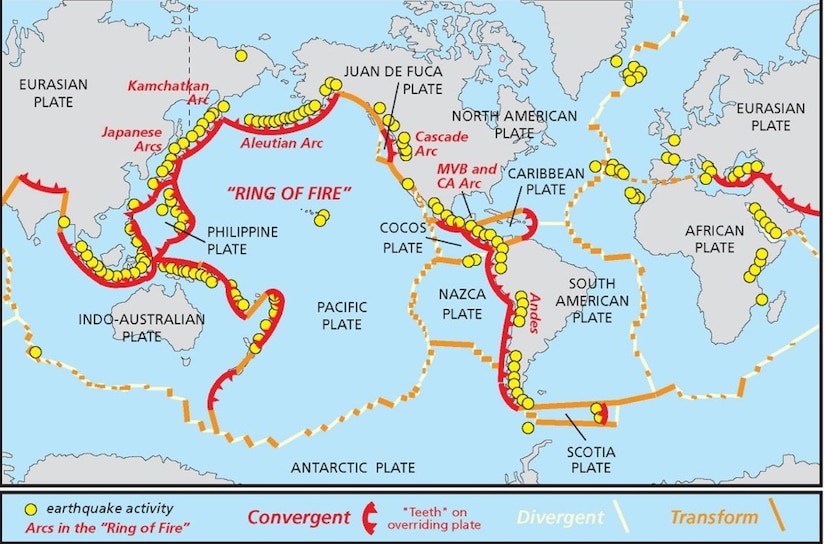In 1967, W. Jason Morgan proposed that Earth’s surface consists of rigid plates that move relative to each other, floating on the mantle, which is the layer below the crust. It was a radical idea at the time that later became known as the theory of plate tectonics. His theory was later bolstered by GPS, which can precisely measure plate movements.
Plate tectonics helps explain how mountains, earthquakes, volcanoes and more are formed by the movement of rigid plates floating on Earth’s mantle.
His second great achievement came in 1971 with the publication of his hot spot theory, which describes how plumes of magma from the mantle cause the formation of volcanoes, which may or may not be located on plate boundaries. The theory explains how the Yellowstone National Park hot spot formed in Wyoming, as well as how many islands were formed, including the Hawaiian island chain.
Morgan also served as an officer in the Navy from 1957 to 1959 after graduating from Georgia Institute of Technology on a Navy ROTC scholarship.
During his naval service, he taught nuclear physics and navigation to submariners at the Nuclear Power School in New London, Connecticut. He said the work prepared him to take an interest in physics and geoscience.
NPS is currently located in Goose Creek, South Carolina. According to the Navy, its nuclear program is widely acknowledged as having the most demanding academic program in the U.S. military. Topics include nuclear physics, nuclear reactor technology, metallurgy, thermodynamics and chemistry.
Morgan was born in Savannah, Georgia, on Oct. 10, 1935, to William Jason Morgan, who also went by Jason, and Maxie Ponita “Nita” Morgan. Morgan’s father served in the Army during World War I in France, working as a blacksmith.
On July 31, 2023, Morgan died at age 87 in Natick, Massachusetts. He is survived by his son Jason Morgan, a geophysicist, and his daughter Michèle Morgan, as well as a number of grandchildren.




